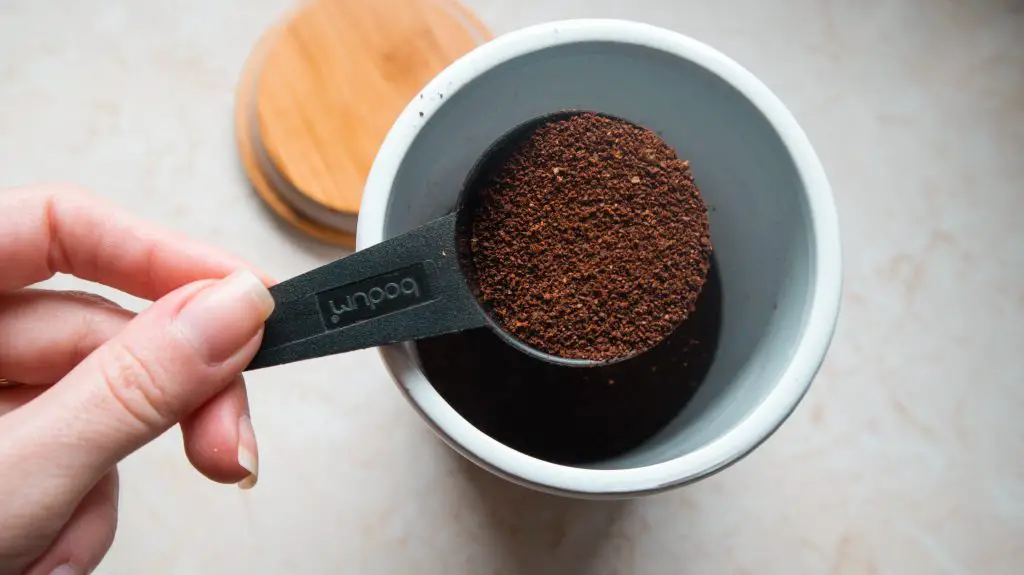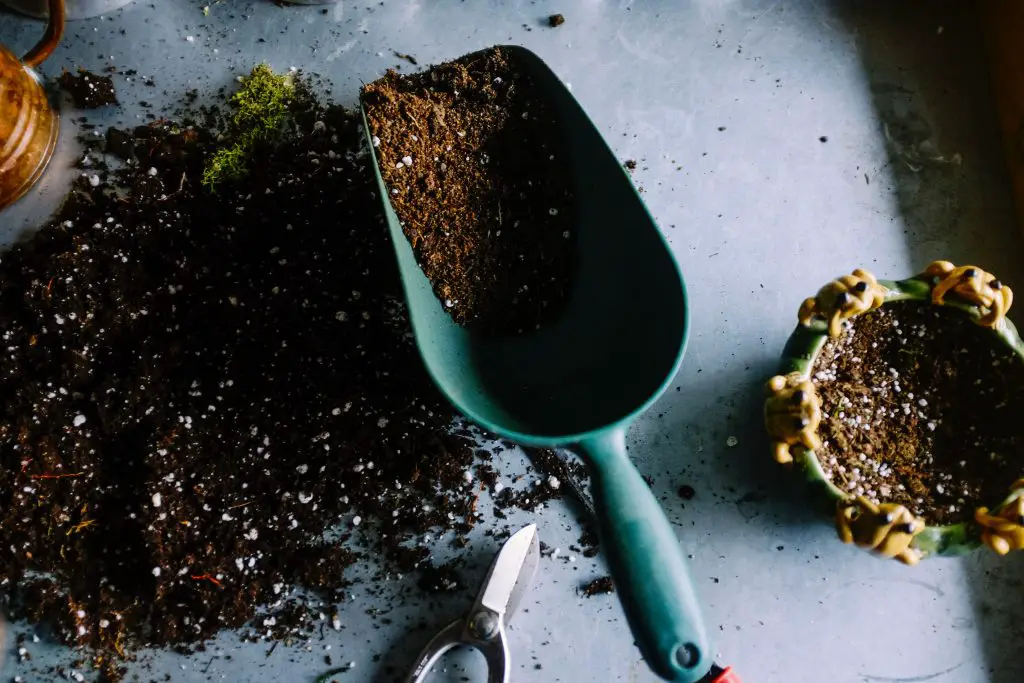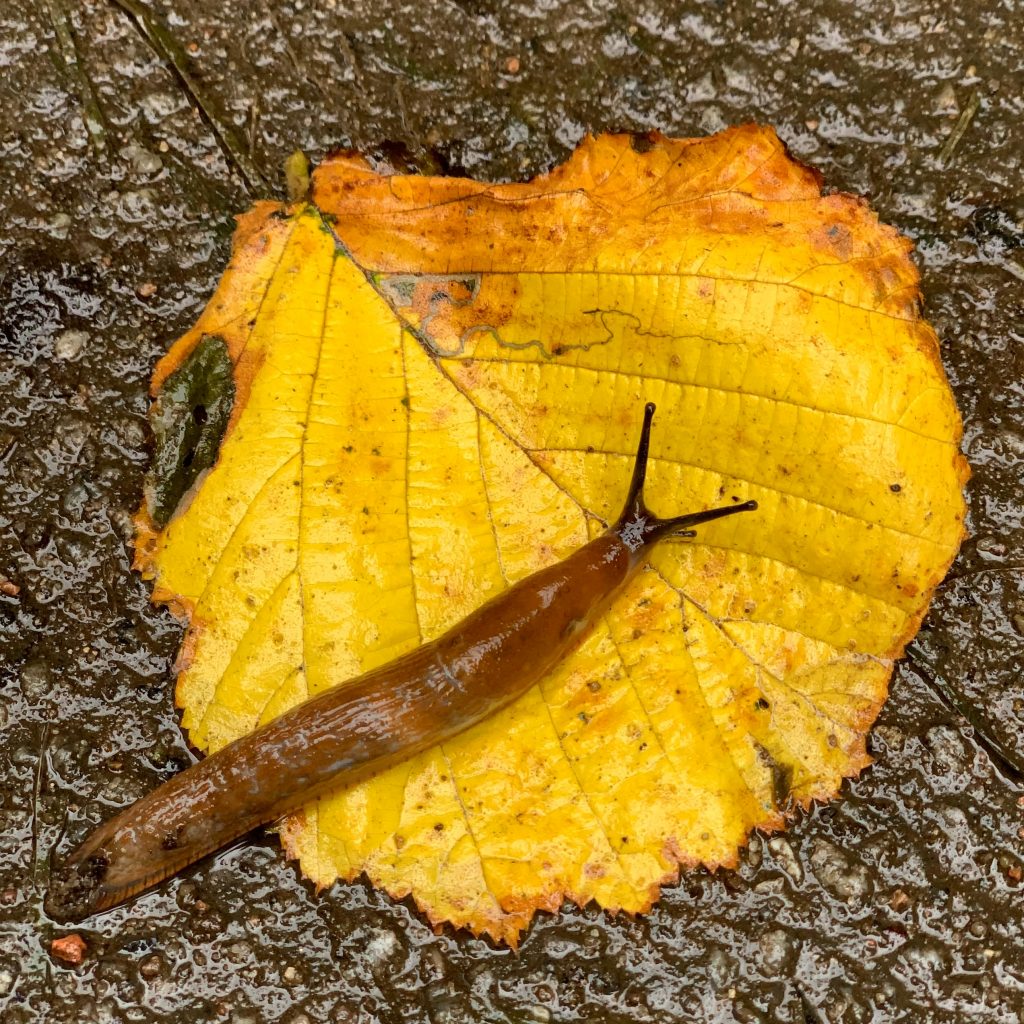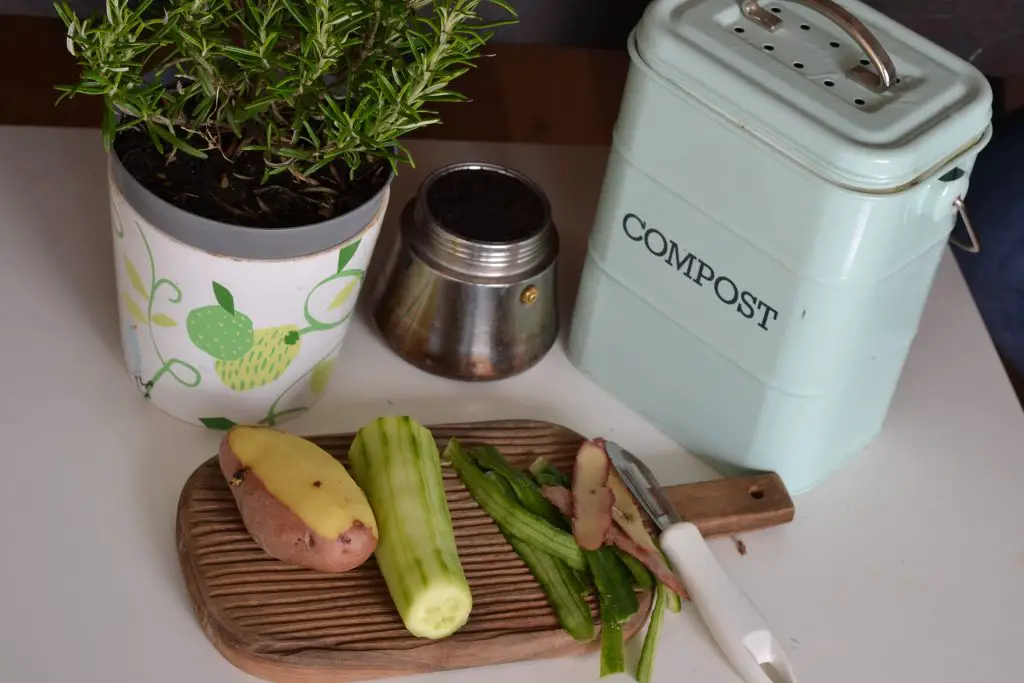We can often hear from our grandparents, parents, and other gardeners that adding coffee grounds to the soil can make wonders for the plant and the soil itself.
Some people claim that coffee grounds can be used for many things, such as mulching, fertilizing, pest repellents, and even disease prevention.

However, there comes a few questions in my mind. Is coffee grounds good for all plants? Can I use coffee grounds for tomato plants?
As a tomato and a coffee lover, I decided to research and try whether coffee grounds can be used for tomato plants or not.
Can You Use Coffee Grounds in Your Garden?
I have read this study and learned that coffee grounds are not beneficial for all plants.
In the study, it was concluded that some horticultural plants’ growth (such as broccoli, leek, radish, viola, and sunflower) was decreased.
However, the growth of weeds decreased as well. So, we can say, that coffee grounds can be a good weed repellent.
But what about using coffee grounds on our tomato plants? Let’s find out this together in the next section of my article.
Coffee Grounds on Tomato Plants
If we think about that coffee grounds are a good source of nitrogen, potassium, magnesium, copper, and other trace minerals then it can be concluded that coffee grounds can be beneficial for many plants, including tomatoes.
Also, the pH of coffee grounds is around 6.8; therefore, it can be beneficial to make the soil more acidic.
As we know tomatoes love slightly acidic soil. This is the main reason why many gardeners think it is a good idea to fertilize tomatoes with coffee grounds.
However, sometimes, coffee grounds can be alkaline, neutral, or too acidic. So, in some cases, this would not be suitable to be used for tomato plants.
So, how come coffee grounds are still used so often in the garden? This question takes us to the next point of the article, where I’ll talk about the method of using coffee grounds for tomato plants.
How to use Coffee Grounds on Tomato Plants?
Using coffee grounds on tomato plants is a quite controversial topic. Some people say you should not use it, some people say it makes wonders.
Therefore, I leave the decision to you. But before, I researched some of the methods that coffee grounds are used by many gardeners.
1. Coffee Grounds as Fertilizer
As I mentioned earlier, coffee grounds contain different nutrients that can be beneficial for tomatoes: nitrogen, potassium, magnesium, copper, and other different trace minerals.
This is the most commonly used claim that coffee grounds are good for tomato plants.
In theory, coffee grounds could be used as a slow-release fertilizer for tomato plants, as it will release nitrogen and other nutrients from the proteins and other organic molecules.
But this will happen only when the microorganism from the soil will start to break down the coffee grounds.
This can backfire when you need fertilizer for your tomatoes as soon as possible. I would not recommend replacing your organic fertilizer with coffee grounds.

2. Coffee Grounds as Mulch
Now, this is a tricky one, I think. Because yes, coffee grounds can be used as mulch, but you must be careful how much you are using and how actually you are using it.
During my gardening journey, I learned that if you put too much coffee grounds around your tomato plants, this will stop the water to soak INTO the soil.
Therefore, I advise you to be mindful when you put coffee grounds on the top of the soil.
The best way of using coffee grounds as a mulch is to apply ½ inch/ 1.2 cm of it and then place 2 inches/ 5 cm of other organic mulch on the top.
This way the coffee grounds will decompose faster and will have a double effect: will help water retention and will decompose and fertilize the plants.

3. Coffee Grounds as Slug and Snail Repellent
Many people claim that coffee grounds are a good slug and snail repellent.
This research has shown that 2% of caffeine can deter slugs and snails. That being said, coffee grounds could be used as a snail and slug repellent.
However, I would not replace my usual slug repellent with coffee grounds, as it would not be effective enough.
Coffee grounds don’t contain the needed concentration of caffeine to be sufficient to kill the pests.
4. Coffee Grounds as Soil Acidifier
Another popular claim is that coffee grounds can lower the soil pH which leads to acidic soil.
As I stated earlier, tomato plants love slightly acidic soil. So, using coffee grounds’ acidity to make the soil more acidic might seem a good idea.
However, different coffee grounds have different acidity levels. Some of them are even alkaline or neutral.
That being said, I conclude that using coffee grounds won’t be a reliable choice when it comes to pH level amendment.
5. Coffee Grounds as Weed Management
I mentioned at the beginning of the article that this research shows that coffee ground helps prevent weeds.
The research also shows that coffee grounds can inhibit the germination of not only weeds but different vegetables’ as well. So, if you really want to use coffee grounds as weed repellent, make sure your tomato plants are already seedlings at least.
Also, the needed amount of coffee grounds for weed repelling is unclear. Therefore, I would say that if you want to make sure there are no weeds in your garden, just use a reliable weed killer.
6. Coffee Grounds as Fungal Disease Prevention
Fungal disease is every gardener’s nightmare. Especially those diseases, such as Fusarium Wilt, that cannot be treated and will mean the end for your tomato plants for that season.
So, many gardeners claim that coffee grounds can be used for fungal prevention thanks to its caffeine content.
However, there is no research that can confirm that it is true. Some studies linked the suppression of different fungal diseases to caffeine. But as I already stated, coffee grounds contain too little caffeine.
So, coffee grounds might be good to prevent fungal diseases in tomato plants. But it is not yet concluded or proven.
Best Way of Using Coffee Grounds on Tomato Plants
As I walked you through different claims and methods of using coffee grounds on tomato plants, you might observe that these are not the ideal ways of using them.
I understand if you still have the question: how should I use my coffee grounds on tomato plants?

Well, in my opinion, the best way to use coffee grounds on tomato plants and generally in the garden, is to add it to the compost.
Adding 20% by volume of coffee grounds to your compost pile and then using it on tomato plants is the safest way of using this “brown gold”.
This way you cannot go wrong and you can benefit from the full potential of the coffee grounds.
Conclusion
As we arrived to the end of this article, I hope I cleared out some confusion in your mind about coffee grounds and its use on tomato plants.
Coffee grounds can be used on tomatoes but you should be aware of the drawbacks and risks of it. Be mindful of how much and how you are using the grounds.
My opinion is that adding coffee grounds to the compost pile and then added to the garden is the safest way of using it.
If you have any experience (good or bad) about using coffee grounds in the garden, please let us know in the comment section so we can all learn from it.
Reference
https://link.springer.com/article/10.1007/s10327-008-0090-8
http://www.uwyo.edu/barnbackyard/_files/documents/magazine/2017/summer/plantsperk0717.pdf
https://www.sciencedirect.com/science/article/abs/pii/S1618866716300103
https://digitalcommons.unl.edu/cgi/viewcontent.cgi?article=1465&context=icwdm_usdanwrc
